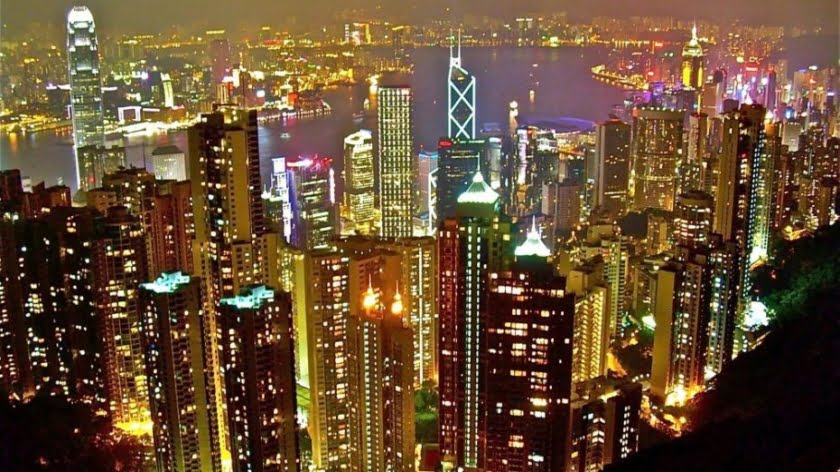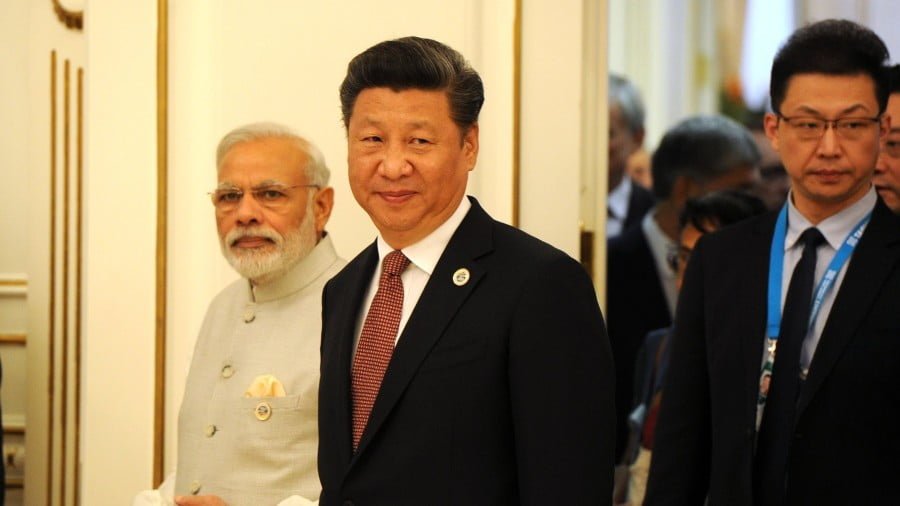Towards Tri-Multipolarity: The Golden Billion, The Sino-Russo Entente, & The Global South
The global systemic transition’s impending evolution towards tri-multipolarity could see the US-led West’s Golden Billion, the Sino-Russo Entente, and the de facto Indian-led Global South becoming the most prominent poles in International Relations, below which would be rising powers and regional groups. All actors would balance one another by multi-aligning within and between their respective levels, which might result in stabilizing global affairs much more than the prior unipolar and bi-multipolar orders did.
International Relations are hurtling towards tripolarity at an astounding pace as a result of the dramatic events that unfolded over the past year and especially the last month. Those readers who haven’t closely been following this megatrend might be taken aback by this assessment, hence the need for them to review the following analyses that’ll place everything into its appropriate context. After listing them, they’ll then be summarized for convenience before explaining what might soon come next:
Background Briefings
* 7 October 2021: “Towards Bi-Multipolarity”
* 16 December 2021: “The Neo-NAM: From Vision To Reality”
* 15 March 2022: “Why Did The U.S. Prioritize Containing Russia Over China?”
* 26 March 2022: “Russia Is Waging an Existential Struggle in Defense of Its Independence & Sovereignty”
* 22 May 2022: “Russia, Iran, And India Are Creating A Third Pole Of Influence In International Relations”
* 6 June 2022: “India Is The Irreplaceable Balancing Force In The Global Systemic Transition”
* 20 June 2022: “Towards Dual-Tripolarity: An Indian Grand Strategy For The Age Of Complexity”
* 5 August 2022: “The Russian Foreign Ministry Comprehensively Explained The Global Systemic Transition”
* 1 October 2022: “The Ukrainian Conflict Might Have Already Derailed China’s Superpower Trajectory”
* 29 October 2022: “The Importance Of Properly Framing The New Cold War”
* 19 November 2022: “Analyzing The US-Chinese-Russian-Indian Interplay In The Global Systemic Transition”
* 29 November 2022: “The Evolution Of Key Players’ Perceptions Across The Course Of The Ukrainian Conflict”
* 14 December 2022: “India’s Principled Neutrality Reaps Grand Strategic Dividends”
* 28 December 2022: “The Five Ways That The US Successfully Reasserted Its Hegemony Over Europe In 2022”
* 1 January 2023: “The New York Times Tried To Throw Shade On India’s Global Rise”
* 7 January 2023: “India’s Global South Summit Is The Most Important Multilateral Event In Decades”
* 11 January 2023: “Exposing Western Media’s Narrative Agenda In Spinning The Sino-American New Détente”
* 4 February 2023: “The Chinese Balloon Incident Could Decisively Shift China’s & The US’ ‘Deep State’ Dynamics”
* 14 February 2023: “NATO’s Self-Declared ‘Race Of Logistics’ Confirms The Bloc’s Military-Industrial Crisis”
* 26 February 2023: “China Compellingly Appears To Be Recalibrating Its Approach To The NATO-Russian Proxy War”
* 28 February 2023: “Just How Drastically Would The World Change If China Armed Russia?”
* 1 March 2023: “Global Fora Like The UN & G20 Are Gradually Losing Their Importance”
* 1 March 2023: “Germany Is Lying: Chinese Arms Shipments To Russia Wouldn’t Violate International Law”
The “New Détente”
To oversimplify the confluence of these complex trends, the US prioritized containing Russia in order to facilitate its containment of China, ergo the latest phase of the Ukrainian Conflict that it provoked via Moscow’s ongoing special operation there. Throughout the course of the NATO-Russian proxy war that followed, the US successfully reasserted its unipolar hegemony over the EU while destabilizing the globalized system upon which China’s grand strategy depends, thus giving it an edge over Beijing.
This in turn prompted President Xi to initiate an attempted “New Détente” during mid-November’s G20 Summit in Bali, during which time he hoped that China and the US could eventually reach a series of mutual compromises aimed at establishing a “new normal” in their ties. The purpose behind doing so was to delay the end of the bi-multipolar world order within which these two superpowers exerted the most influence over International Relations, which was challenged by India’s rise over the past year.
India’s Game-Changing Influence
That South Asian state became a globally significant Great Power during this time as a result of its masterful balancing act between the US-led West’s Golden Billion and the jointly BRICS– & SCO-led Global South of which it’s a part. Its kingmaker role in the New Cold War between them over the direction of the global systemic transition enabled the rest of the Global South to rise in India’s wake, thus revolutionizing International Relations by accelerating the emergence of tri-multipolarity.
The aforementioned sequence of events imbued the Sino-American “New Détente” with a sense of urgency since both superpowers had self-interested reasons for regaining joint control of these processes, though their attempted rapprochement was unexpectedly derailed by the balloon incident. The resultantly renewed influence of hardline factions over policymaking that occurred in the aftermath of that incident abruptly ended their incipient talks and placed them on the trajectory of intense rivalry.
China’s Grand Strategic Recalculations
In parallel with the abovementioned development, NATO declared that it’s in a so-called “race of logistics”/“war of attrition” with Russia, which implied that it’ll redouble its military support to Kiev even at the expense of meeting its own members’ minimum national security needs. Should that bloc succeed in making a breakthrough along the Line of Control (LOC), then it could catalyze the worst-case scenario of Russia’s “Balkanization” if those disadvantageous military-strategic dynamics spiral out of control.
Both President Putin and his predecessor Medvedev recently warned about that possibility, which remains unlikely for now but still can’t be discounted, thus contributing to China’s gradual recalibration of its approach to the NATO-Russian proxy war when coupled with the end of the “New Détente”. This directly led to the People’s Republic seriously considering the dispatch of lethal aid to its strategic partner in order to offset that worst-case scenario, thus prompting sanctions threats from the West.
“The Great Trifurcation”
In the event that China feels forced by NATO to aid Russia in such a way and the Golden Billion imposes sanctions against it in response, then it’s expected that a US-initiated Chinese-European “decoupling” along the lines of the prior US-initiated Russian-European one could potentially follow. Reuters’ exclusive report on Wednesday citing four unnamed US officials and other sources extended credence to the preceding scenario by revealing that the Golden Billion is indeed discussing multilateral sanctions.
Should those two developments take place – China arming Russia and then being sanctioned by the Golden Billion in a way that provokes their “decoupling” (whether gradual or instantaneous) – then International Relations would enter a period of tri-multipolarity characterized by the prominence of three poles that exert the most influence over global affairs, but whose influence nevertheless wouldn’t be absolute since it’ll be kept in check to an extent by rising powers and regional groups.
The Tri-Multipolar World Order
The three expected poles are the US-led West’s Golden Billion, the Sino-Russo Entente, and the de facto Indian-led Global South that’ll likely continue informally assembling into a new Non-Aligned Movement (“Neo-NAM”). Within the last-mentioned will reside rising powers like Brazil, Iran, South Africa, and Turkiye, among others, alongside regional groups like the African Union (AU), ASEAN, and the Community of Latin American and Caribbean States (CELAC).
Each of these three categories of actors – the three poles as well as the rising powers and regional groups that sit below the former in this informal international hierarchy – are expected to balance one another by multi-aligning within and between their respective levels. India’s role will be the most important of them all since it’s poised to facilitate trade between the Golden Billion and the Sino-Russo Entente in the event that their potential “decoupling” is taken to an extreme, which can’t be ruled out.
India’s Kingmaker Role
Furthermore, India’s earlier virtual hosting of the Voice Of Global South Summit positioned this civilization-state as the center of gravity for its fellow developing peers, which bolsters the likelihood that the Neo-NAM will continue informally assembling around it. From there, India can promote its own financial, technological, and other platforms in order to provide Global South states with a neutral third choice between the Golden Billion and the Sino-Russo Entente’s respective ones in the New Cold War.
Those rising powers and regional groups that participate within the unofficially Indian-led Neo-NAM could also develop their own platforms too, but India’s might become the standard for facilitating engagement between them at their early stages. In parallel, global fora like the UN and G20 will no longer have much significance other than functioning as talking clubs, while interests-driven and regional groups will replace their prior role in promoting tangible cooperation between countries.
Concluding Thoughts
The global systemic transition’s impending evolution towards tri-multipolarity could see the US-led West’s Golden Billion, the Sino-Russo Entente, and the de facto Indian-led Global South becoming the most prominent poles in International Relations, below which would be rising powers and regional groups. All actors would balance one another by multi-aligning within and between their respective levels, which might result in stabilizing global affairs much more than the prior unipolar and bi-multipolar orders did.








The subject is definitely relevant.
presents an intriguing perspective on shifting global dynamics. The concept of tri-multipolarity highlights the evolving power dynamics among regions. The collaboration between China, Russia, and the Global South indeed carries significant implications for geopolitics and economics.